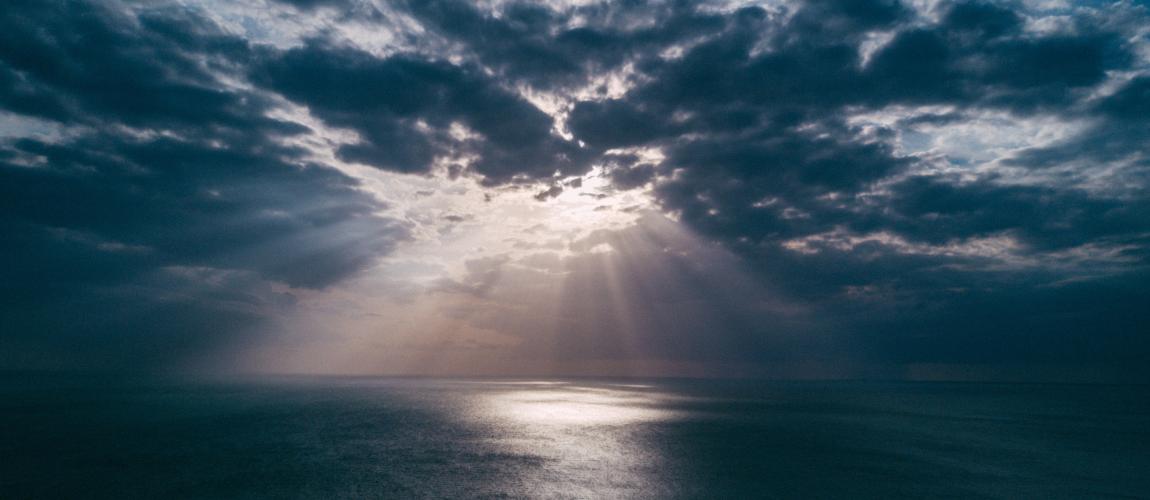

Photo by Josh Sorenson from Pexels
All the Light We Cannot See
I recently finished Anthony Doerr’s All the Light We Cannot See. My husband gave it to me a few Christmases ago, and I love the habit he has of choosing books for me. He does his research and carefully selects what he thinks I’ll enjoy. But even though this one is a New York Times Bestseller and Pulitzer Prize winner, I shelved it until I could steel myself for a book about World War II.
Now I am no stranger to heavy literature (Shakespeare’s tragedies are not exactly beach reading) but in these years as a mother of little ones, I find that my threshold for disturbing ideas is a bit more easily transgressed. I can’t handle heart wrenching scenes involving children the way I used to. Who am I kidding, I can’t even watch the scene in Dumbo where the mama elephant rocks her baby in her trunk through the bars of her cage. Seriously, I cry. Forget crime shows or movies like Ransom. Nope and nope.
But great literature is great because it does not shy away from that which is both ugly and inspiring about our human nature. It brings light to all the dark corners, never fails to make us think, and uplifts us in the spirit of a shared condition. Anyway, I stopped being a baby and read this book. I’m so glad I did. Doerr uses the technique of flip-flopping between separate but parallel stories from chapter to chapter, so reading becomes a perpetual tease and you are engrossed from cover to cover. The stories converge at the end in hauntingly beautiful harmony.
The passage I want to share with you comes when a single father is bathing his daughter, who is blind. They flee Paris during the occupation and here he is in hiding in Saint-Malo contemplating the plight of a parent:
She lets him wash her hair. Over and over Marie-Laure trawls her fingers through the suds, as though trying to gauge their weight. There has always been a sliver of panic in him, deeply buried, when it comes to his daughter: a fear that he is no good as a father, that he is doing everything wrong. That he never quite understood the rules. All those Parisian mothers pushing buggies through the Jardin des Plantes or holding up cardigans in department stores--it seemed to him that those women nodded to each other as they passed, as though each possessed some secret knowledge that he did not. How do you ever know for certain that you are doing the right thing?
There is pride, too, though--pride that he has done it alone. That his daughter is so curious, so resilient. There is the humility of being a father to someone so powerful, as if he were only a narrow conduit for another, greater thing. That’s how it feels right now, he thinks, kneeling beside her, rinsing her hair: as though his love for his daughter will outstrip the limits of his body. The walls could fall away, even the whole city, and the brightness of that feeling would not wane. (188-9)
Is this not, in so many ways, what every parent feels? How many times have I felt like everyone is doing a better job than I am? How many times have I Googled a parenting question, certain that I need to obtain some wisdom held by others who must know more than I do about my own children? And how, many times, I have felt as if my heart would burst at the aching perfection of their sweet little souls. I watch my oldest take the hand of my youngest and whisper, “Don’t worry. Sissy is here.” My middle gives me a kiss and says, “Mommy, I do love you as big as the whole world.” They are the greatest contribution I could have ever made to this universe.
Doesn’t every parent feel like “a narrow conduit for another, greater thing”? At the end of this book, as it does in history, the whole city does end up falling away. But what truer message than this one to take with us? No matter what ugliness our civilization might be capable of, the pure good that children bring is a force that will “not wane”. Our capacity for love, despite the bombs we may hurl at one another (and at ourselves), is the promise of our future.
Excerpt from All the Light We Cannot See by Anthony Doerr. Scribner, 2014.


2 comments